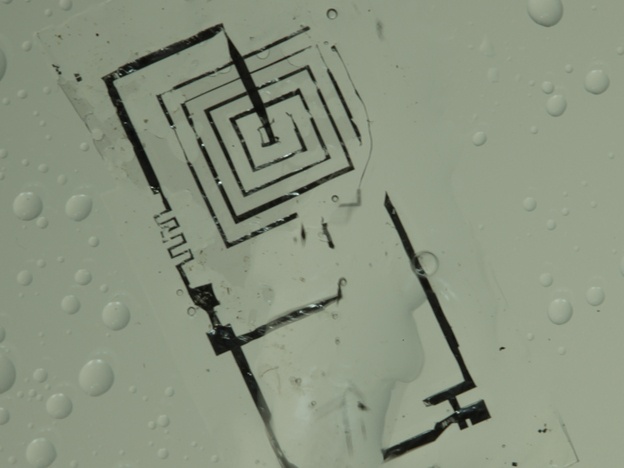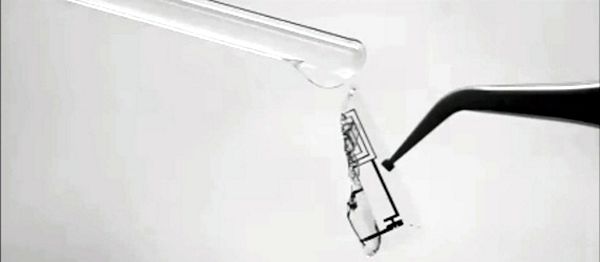A collaboration of Tufts Univeristy, University of Illinois and the Defense Advanced Research Projects Agency (DARPA) resulted in the development of electronic devices that dissolve in water or biological fluids dissolves and break down in traces of silicon and magnesium. Because of the small amount, these components can be harmlessly assimilated by biosystems like the human body, potentially opening the path to the development of implantable electronic devices that require only temporary implant, but instead of being surgically explanted, are simply allowed to get absorbed by the body after their mission is over.
The transient electronic devices are built on ultrathin sheets of silicon of a few tens of nanometers thick. To control the life span of the nanoscale electronics, the team encapsulated them in silk proteins. The silk protects the components for a certain period against dissolution. The exact amount of time is determined by manipulating the properties of the silk.
Besides their use in implantable devices, transient electronics are expected to make a large impact in helping the environment. According to Fiorenzo Omenetto, professor of biomedical engineering at Tufts School of Engineering: ‘Imagine the environmental benefits if cell phones, for example, could just dissolve instead of languishing in landfills for years.’


